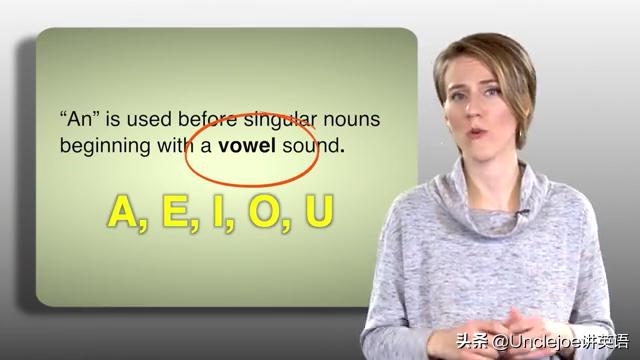作为外语的英语学习,还是要深入学习语法的。会说母语的中国人上学了,都还要在语文课上学习汉语知识。因为会阅读一种语言不会说,叫“哑巴”;会讲一种语言而不会语法,那叫“文盲”。我用下面的例子说明学习外语学习中语法学习的重要性。
我最近在做美国英语日常语法系列视频的中文注释,想通过视听说写途径指导学习者提高综合运用能力。但口语化的语法教学必然比较浅显,譬如第7课讲到动名词的不定式的区别时,只有这样的小结:
1.Some verbs are followed by gerunds. Gerunds are the -ing form of a verb. They function like nouns. "I suggest going to the beach". An infinitive is the to form of a verb. “I want to go to the beach”.
2.Other verbs are only followed by infinitives. “I want to dance.” And some verbs can be followed by gerunds and infinitives. “I like to run. I like running.”
3.There are some rules for deciding when to use a gerunds and when to use an infinitive but they’re very technical. It’s probably easier to just memorize the most common verb combinations.
其中“有的动词后面接动名词,有的动词后面接不定式,有的动词接动名词和不定式都可以”这样的语法指导,讲了等于没讲。或者说There are some rules for deciding when to use a gerunds and when to use an infinitive but they’re very technical。 也就是说复杂的语法知识“很专业,very technical”,一两分钟是讲不清楚的,需要专题讲解。
如果说这是限于篇幅的话,第8课会话中的冠词一讲中“元音、元音字母和元音音素”的概念却是举例不当,本文一定要澄清一下。
查英英字典, 元音(vowel)是个名词,有两个意思,第一个意思是元音音素 (vowel sound),第二个意思是元音字母 (vowel letter)。
vowel n. 1 a speech sound made with the vocal tract open Synonym: vowel sound
2 a letter of the alphabet standing for a spoken vowel
辅音(consonant)也是个名词,也有两个意思,第一个意思是,不是元音音素的音素 (consonant sound),第二个意思是辅音字母 (consonant letter)。
consonant n. 1 a speech sound that is not a vowel
2 a letter of the alphabet standing for a spoken consonant
可第8讲关于a用在辅音音素前面,an用在元音音素前面举例是这样的:

图一的讲解是辅音音素(consonant sound),举例却是辅音字母。

图二的讲解是元音音素(vowel sound),举例却是元音字母。而实际语法运用中是以辅音音素和元音音素来区别冠词a 和an用法的,应该如下面两图所示:


不然会产生一些误导,因为有的辅音字母第一个音发元音音素,前面要加an;有的元音字母第一个音发辅音音素,前面要加a。
关于冠词a, an用法“很专业,very technical”的解读,下一讲再详细发布。
,




